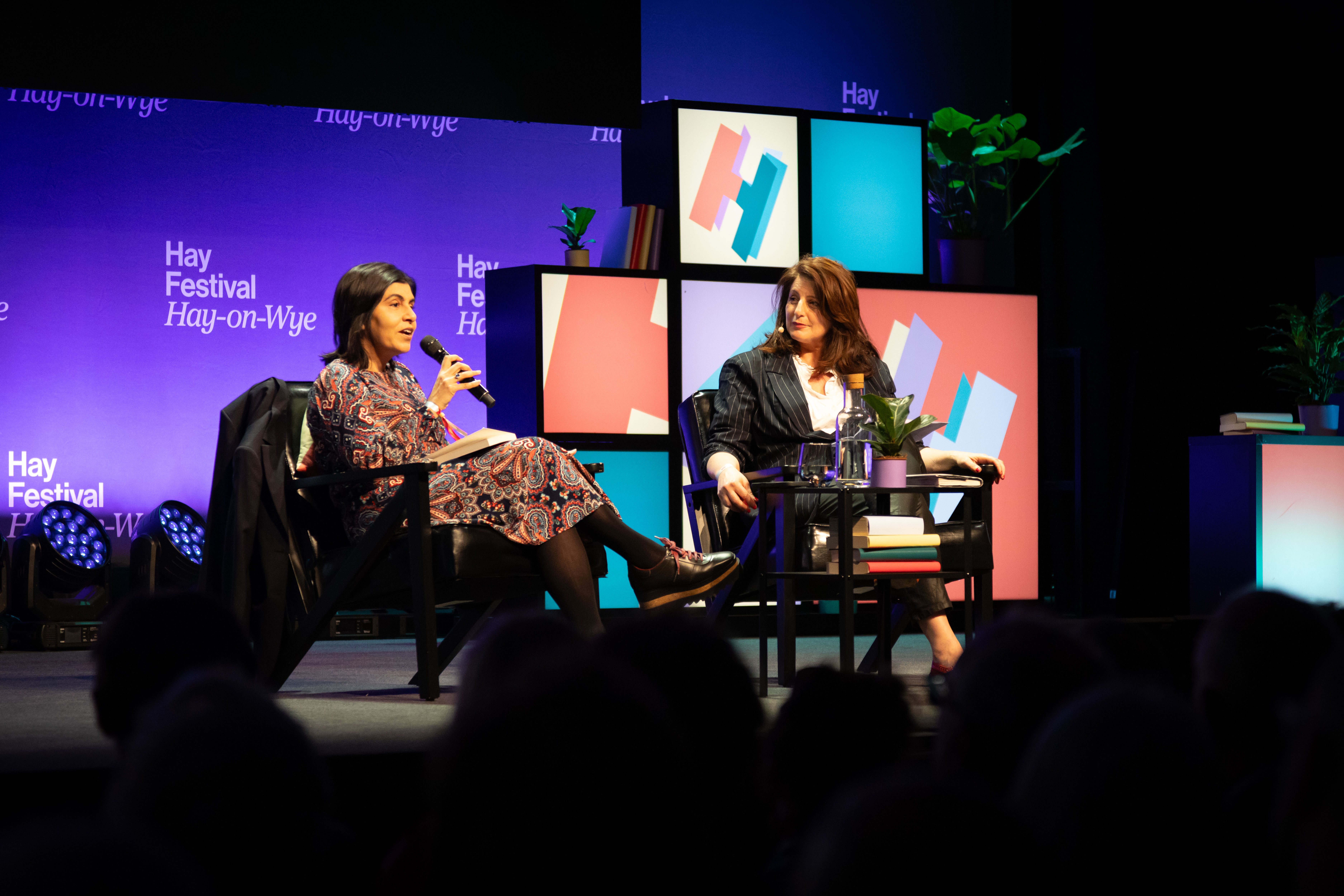
Baroness Warsi has drawn a stark comparison between rising Islamophobia in Britain and the treatment of Jewish communities in 1930s Europe, warning that “deeply dangerous” narratives are being fuelled by those in power.
Speaking at the Hay Festival in Hay-on-Wye, the former Conservative cabinet minister said she was “heartbroken” by the way Muslim communities are increasingly portrayed in public discourse.
“It doesn't matter how many times you serve and how many times you do what you do for our country,” she said, in conversation with the British-Israeli journalist Rachel Shabi. “You still don't belong. You still don't matter. You still can't be trusted.”
Warsi, who served as co-chairwoman of the Conservative Party and sits in the House of Lords, reflected on her experience growing up as a working-class, second-generation Pakistani Muslim in West Yorkshire. She described a recent conversation with her husband in which she questioned whether they should begin preparing “exit routes”.

“I turned to him and I said, are we going to be like those Jewish families in Europe in the 1920s and 1930s, who were always sitting back, looking at the writing on the wall and thinking, ‘No, we're going to be all right. We’re very successful. We live in the right part of town. We’re part of the establishment…’ And then it will be too late. Should we be doing what everybody else around us seems to be doing right now, which is putting in place plan Bs and exit routes?”
Discussing her new book Muslims Don’t Matter, Warsi said there was a “bizarre correlation with skin pigment and gratefulness” in British society.
“It’s like the darker you get, the more grateful you have to be to live in your own country,” she said.
She argued that negative perceptions of Muslim communities were not emerging organically but were being driven by political and media elites. “The good news is, this is not bottom up,” she said. “This is not ordinary people sat there thinking, ‘Oh, I really have an issue with Muslims, and I'm now going to have quite hateful views about them.’ This is people in power and people with big platforms constantly telling us, ‘We can't trust Muslims. They're all dangerous, they're violent, the men are sexually predatory, the women are traditionally submissive.’”
“It’s these tropes which we’re constantly being told about Muslim communities, which, in the end, poisons the public discourse to a point where we start seeing this community in the worst possible light.”
She added that some on the far-right had been “desperate” for a recent attack in Liverpool to have been carried out by a Muslim.
“They could then say, ‘Aha! Told you so.’ And already the language was: we are at war. This is a divided nation. These are different people from a different culture – until we worked out that he was a white guy in his fifties.”
Despite warning that the current political climate is “deeply dangerous”, with more global conflicts now than at any point since the Second World War, Warsi ended her appearance with a call for solidarity.
“This is a fight for all of us, the kind of country that we want to be,” she said. “It’s time for us to organise and it’s time for us to fight back, because all of our rights in the end will suffer.”
Family of an Israeli held hostage in Iraq for 800 days hangs on to hope for her freedom
Met chief: Forces will more often have to release details about suspects earlier
Trump pauses student visa applications to expand social media screening
Five vets operate on sedated 17-stone tiger for ‘tricky’ paw operation
Almost 2.5 million people in England likely to have ADHD, data shows
UK traffic accident map: The worst areas for road incidents revealed







